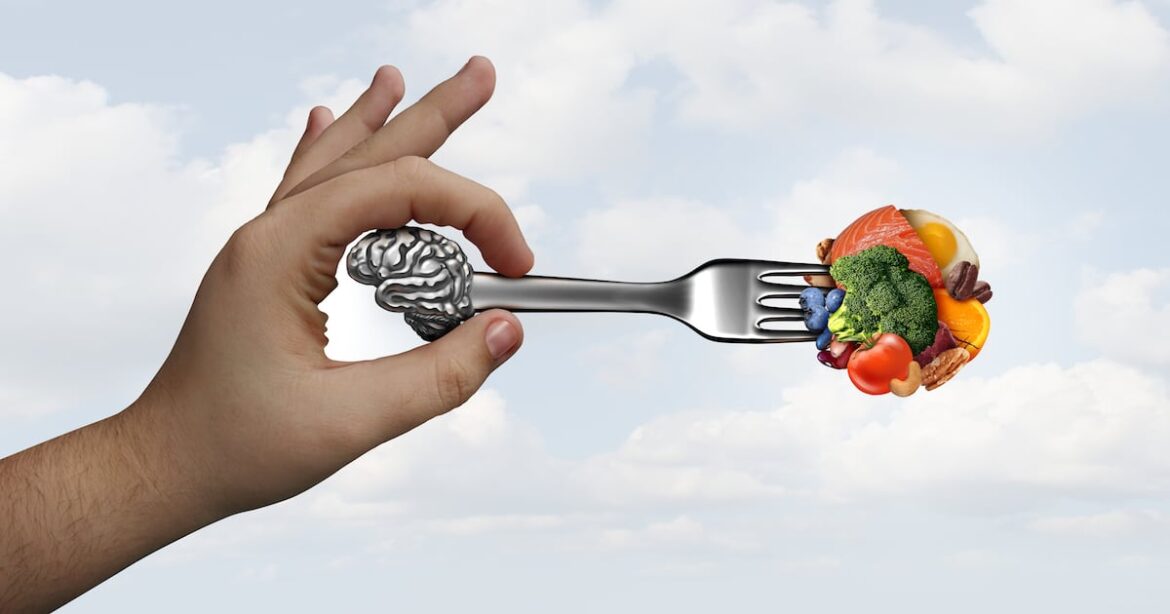Experts at Chi Longevity have cautioned against a one-size-fits-all approach – and stressed the goal is to provide nutrients for neuroplasticity – the brain’s ability to change and respond to stimuli.
According to Chi Longevity’s senior dietician Denise Teo, there are nutritional interventions that are backed by large-scale clinical studies on diet and cognitive health.
Diets for brain longevity
“When designing nutrition plans, we base our recommendations on established dietary principles rather than advocating for one specific diet.
“There are numerous dietary approaches with proven benefits, including plant-based diets, the Mediterranean diet, and various regional adaptations. Each has unique advantages, and we tailor recommendations to suit individual health goals and lifestyles,” said Teo.
For older adults at risk of dementia, a Mediterranean-style diet could be effective in managing cognitive function.
This is demonstrated in the 2015 Finnish Geriatric Intervention Study to Prevent Cognitive Impairment and Disability (FINGER) trial, a two-year study in Finland that demonstrated how a combination of nutrition guidance, cognitive training, physical exercise, and vascular risk monitoring could significantly improve cognitive function in older adults at risk of dementia.
With over 1,200 participants aged 60–77, those in the intervention group – who followed a diet similar to the Mediterranean diet, alongside structured cognitive and physical training – showed higher overall cognitive scores, better executive function, and faster processing speed compared to the control group.
Older adults can also benefit from the Dietary Approaches to Stop Hypertension (DASH) diet, which was originally designed for cardiovascular health.
Studies suggest that older adults following DASH with weight management strategies exhibited improved executive function, memory, and processing speed.
Research has also shown that Asian plant-based dietary patterns have been linked to better memory and higher global cognition scores in older adults, said Teo.
For example, the diets associated with improved cognitive outcomes feature stir-fried and fermented vegetables (pickled cabbage), which could enhance the bioavailability of phytochemicals.
Similarly, a “multigrain rice” dietary pattern – such as brown rice, millets, black rice, barley – compared with a “white rice and noodles” dietary pattern was shown to reduce the risk of cognitive impairment in elderly Asians.
To further boost brain health, targeted supplementation on a needs basis can enhance cognitive function across all ages.
Tailored supplementation for cognitive function
Chi Longevity applies advanced diagnostic techniques to detect the precise markers of biological age, then influences these hallmarks of ageing to deliver a personalised health programme.
Within the growing longevity market, the firm says supplements for cognitive health are gaining popularity.
“Nootropics and adaptogens are gaining popularity, with people increasingly seeking naturally sourced products that can enhance specific cognitive functions.
“Many of our clients are already taking supplements such as ashwagandha, various types of ginseng, Bacopa monnieri, and Ginkgo biloba. However, the choice of supplement should ultimately align with the user’s specific goals.
“We emphasise a needs-based approach rather than overprescribing. For example, we wouldn’t recommend protein powder to everyone – only to those who are not getting enough protein through their diet, making poor dietary choices, or struggling to find natural food sources to meet their needs,” Teo explained.
However, she cautioned that while emerging research suggests certain nootropics can provide modest cognitive benefits, more studies are needed to fully understand their long-term impact.
Apart from omega-3 fatty acids and creatine, which are widely known to benefit brain and cognitive functions, antioxidants are also gaining traction.
For example, curcumin has been shown to support working memory and mood regulation, making them another option for cognitive support.
However, Teo cautioned against excessive supplementation, noting that vitamins D, folate, and B12 should only be taken in cases of deficiency, as studies show no added cognitive benefit otherwise.
Going forward
As research progresses, new dietary interventions show promise for cognitive longevity.
The MIND diet, which blends Mediterranean and DASH principles, prioritizes brain-healthy foods like leafy greens, berries, and whole grains. Observational studies suggest it may slow cognitive decline, though long-term trials are ongoing.
Next is the ketogenic diet, which promotes high fat and very low carbohydrate intake, has been linked to improved cognition in those with mild cognitive impairment or early Alzheimer’s. Potential benefits include enhanced neuronal energy efficiency and reduced inflammation.
Additionally, intermittent fasting, where food intake is restricted for at least 12 hours, has been linked to better brain function, metabolism, and overall cognitive performance.
Research suggests that fasting triggers the release of brain-derived neurotrophic factor (BDNF), a protein that supports learning and memory. It also helps reduce inflammation and activates autophagy, the body’s natural process of clearing out damaged cells.
The company is now expanding its approach by focusing on the brain-body training approach, which integrates medical diagnostics with nutritional and physical fitness interventions, enhance cognitive health at any life stage.
This new approach to enhancing brain function was put in the spotlight with the 18 February 2025 announcement of Chi Longevity’s acquisition of Asia’s first brain-health gym, Sparkd.
Sparkd will play a crucial role as the physical and cognitive training component of the client’s programme – the training will include a combination of cardio, strength, balance, motor skills, and coordination exercises, said Milani.
Clients are also continuously reassessed, with their diagnostics updated in a common portal that can be accessed by the nutritional or physical training coaches working with them.

